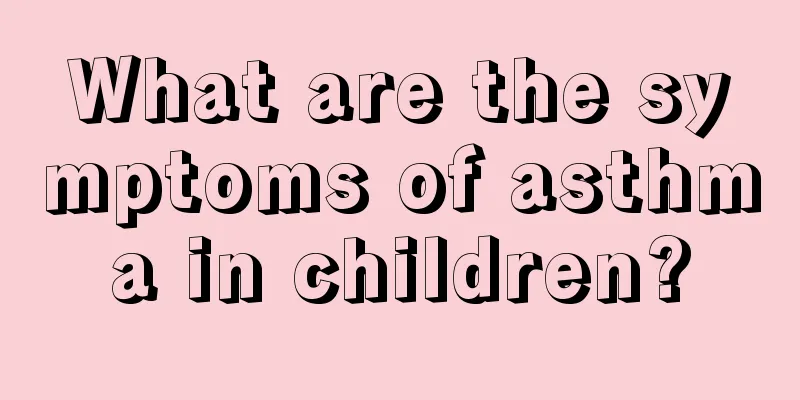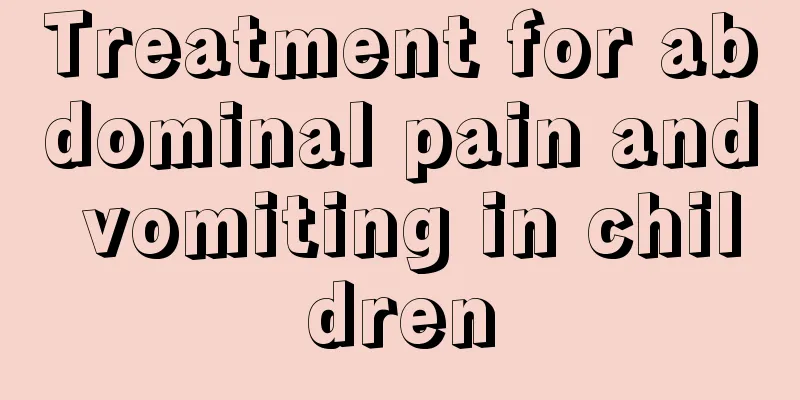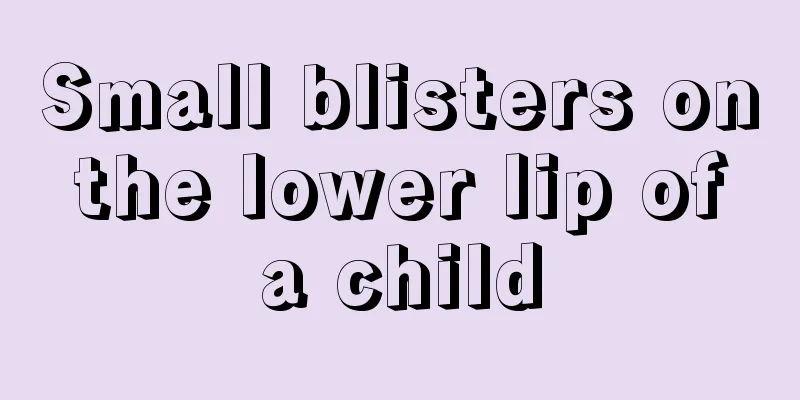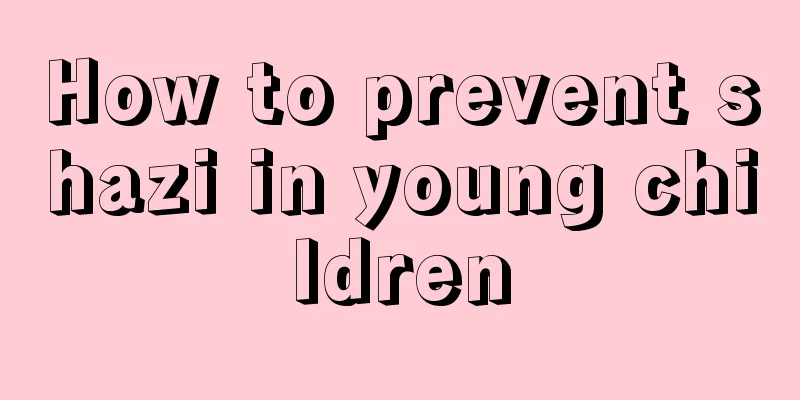What should I do if my baby has diarrhea after vaccination?

|
Every baby needs vaccinations. Although many epidemic diseases are no longer prevalent now, we still need to take precautions. If the baby is infected with an infectious disease, the consequences will outweigh the benefits. Therefore, every parent should remember to take their baby for vaccinations in time! However, some babies will have some special reactions in their bodies after vaccination, such as diarrhea. So, what should I do if my baby has diarrhea after getting a vaccination? Parents ask: My baby had diarrhea after vaccination. Is this normal? Doctor's answer: Some recipients may experience gastrointestinal reactions such as nausea, vomiting, diarrhea, and loss of appetite after vaccination, but the baby's diarrhea is not necessarily related to the vaccine and the specific vaccine should be analyzed. If it is caused by vaccines and lasts for more than 3 days, give your baby plenty of water and keep him warm. If symptoms persist and do not improve, it is recommended to see a doctor. Nutritional supplements During diarrhea, you should ensure nutritional intake and maintain your normal diet without deliberately reducing or diluting it. Breastfed babies should continue to breastfeed, and increase the frequency of feedings and the duration of single feedings. Five kinds of food are recommended for babies who are adding complementary foods: bananas, baby rice cereal, applesauce, bread, and yogurt (these five foods are very effective in helping babies relieve diarrhea). After the diarrhea symptoms improve, don’t rush to eat a lot of meat and fish! You should let the fragile intestines rest more and give the gastrointestinal tract time to repair. Zinc supplementation Supplementing zinc when suffering from diarrhea can shorten the course of diarrhea, reduce the severity of diarrhea and reduce the risk of dehydration. Infants under 6 months old should take 10 mg of zinc per day, and children over 6 months old should take 20 mg of zinc per day. Continuous zinc supplementation 1-2 weeks can replenish the zinc lost during diarrhea and reduce the risk of recurrence of diarrhea within 2 to 3 months after the illness. Try to choose sugar-free zinc preparations for children under 1 year old. Taking antidiarrhea medicine If the diarrhea is severe, you can take some montmorillonite powder (Smecta), which has almost no side effects and can protect the intestinal mucosa. Babies can also take it, as long as you pay attention to the dosage. |
<<: How often should vaccinations be given?
>>: Can my baby get a vaccination if he has phlegm in his throat?
Recommend
One month old baby has yellow discharge from the ears
The organs of a newborn baby are not fully develo...
Is it better to choose silicone baby bottle or glass baby bottle?
We all know that after the baby is weaned. It is ...
What causes nosebleeds in three-year-old babies?
Normally, babies rarely have nosebleeds before th...
What to do if a 3-year-old child has diarrhea
It is normal for a 3-year-old child to have diarr...
Can children eat raw bullwhip and bull eggs?
Bullwhips and bull eggs are both edible, but it i...
What are the symptoms of elbow dislocation in children?
There are several relatively large joints in our ...
How to remove the small red pimples on children’s faces?
How to remove the small red pimples on children’s...
What causes blisters on the soles of children's feet?
For children, paying attention to hygiene is the ...
What are the symptoms of moderate developmental delay?
Developmental delay can be mild, moderate or seve...
The baby is more than three months old and keeps moaning
Parents love their children very much, especially...
What is the best way for children to lose weight?
Many people have a misunderstanding of children&#...
How long does it take to get rid of fever after taking the antipyretic injection?
It is actually very common for babies to have a f...
Baby's palms are hot
It is well known that infants in swaddling clothe...
How much plasma protein is in a child
There is protein in everyone's blood. The con...
What are some common sense about children's healthy diet?
Children also need to pay special attention to th...









